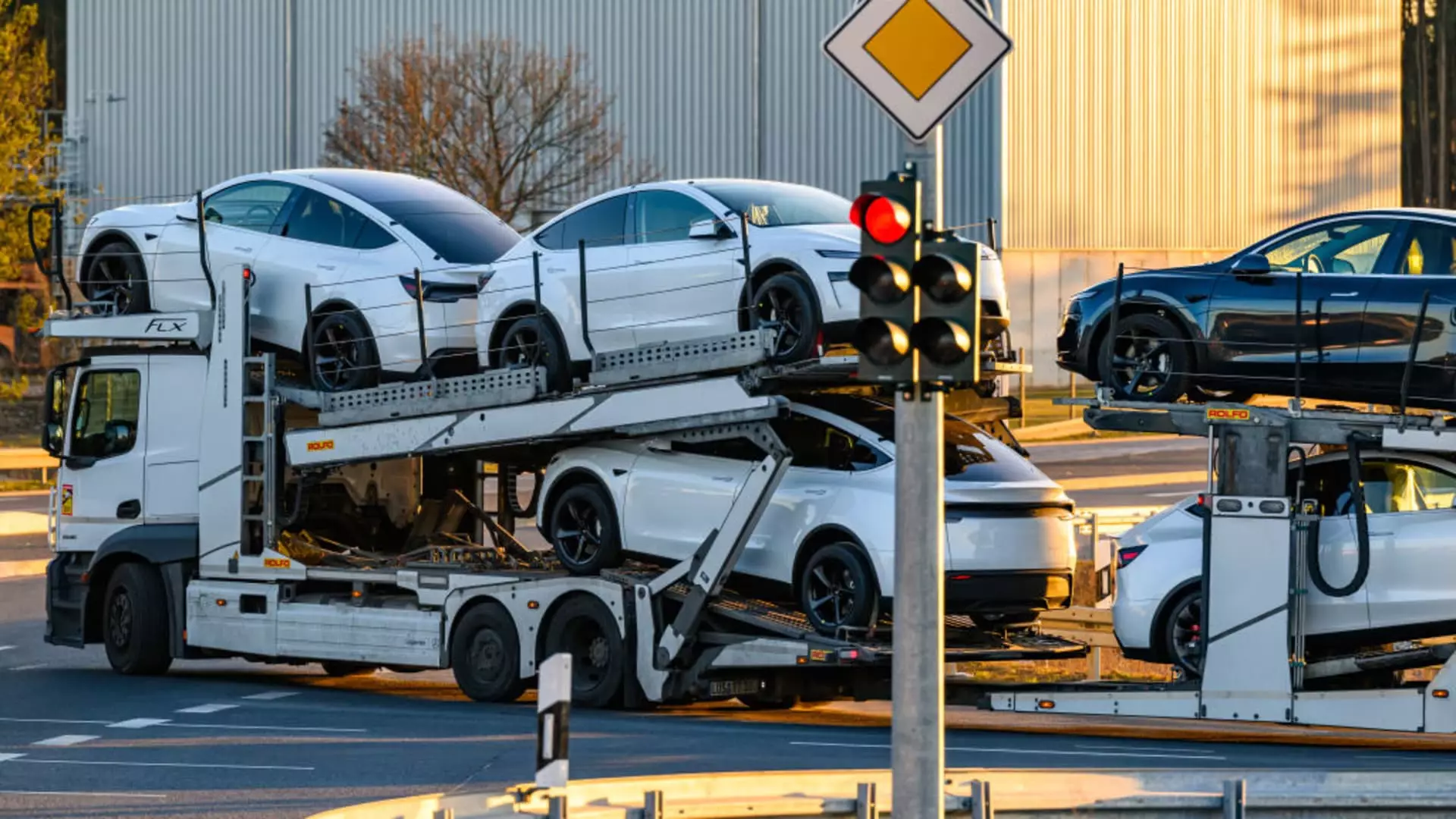Tesla’s recent release of its first-quarter 2025 delivery numbers has ignited concerns that the electric vehicle (EV) titan might be veering off course. Reporting just 336,681 vehicle deliveries—a stark 13% drop from the previous year—Tesla is facing a stark reality check. Analysts anticipated numbers much higher, expecting the figure to fall between 360,000 and 370,000 units, revealing a concerning disconnect between expectations and reality. To put it bluntly, this isn’t just a minor stumble; it’s a full-blown miscalculation that signals potential trouble ahead.
What’s more alarming is the mention of significant planned production adjustments and manufacturing upgrades during the quarter. While it’s crucial for innovation, the timing couldn’t be worse. Tesla managed to churn out 362,615 vehicles, yet fell far short of satisfying investor sentiments, shining a spotlight on the more intricate issues of supply chain management and operational strategy that the company might be grappling with.
The Fallout for Investors
Following these disappointing figures, Tesla shares experienced their most tumultuous quarter since 2022, plummeting 36%. This astonishing drop translates to a colossal loss of $460 billion in market capitalization—an eye-watering figure that no amount of optimistic forecasting can overshadow.
Dan Ives, a prominent Tesla analyst, didn’t mince words; he labeled these delivery numbers as a “fork in the road moment,” indicating a potential turning point for the automaker. When even the strongest proponents of the company begin to adopt a more critical stance, it raises significant eyebrows about Tesla’s long-term viability. Such language suggests that investors should adopt a more pragmatic and cautious approach, rather than remaining ensnared in the comforting echo chamber of previous triumphs.
Brand Crisis and Reputational Damage
Tesla’s troubles extend far beyond mere numbers—it’s clear that the company is tangled in a web of reputational damage stemming from Elon Musk’s controversial political affiliations. His vocal support for various political movements has not only drawn criticism but has also served as a double-edged sword, compromising the brand’s image amidst growing tides of public dissent. The recent protests and boycotts against Tesla vehicles evoke a sense of disillusionment; consumer trust is pivotal in the automobile sector, especially in a market as sensitive as electric vehicles.
The ramifications of Musk’s political engagement, particularly his ties to the Trump administration and controversial figures in Europe, are exceedingly troubling. As Tesla embraces technological innovation, its leadership must acknowledge the importance of public perception and the broader social implications of their business decisions. Otherwise, they risk alienating core customer bases—particularly in regions like Europe where their market share has dramatically dwindled from 17.9% to 9.3%.
The Competition Heats Up
While Tesla struggles with internal and external challenges, one cannot overlook the fierce competition that’s brewing in the EV landscape. Rivals like BYD and Ford are rapidly enhancing their offerings, drawing consumers away from Tesla’s once-unassailable position in the market. As the EV space becomes increasingly crowded, Tesla must not only innovate but also ensure that its business practices enhance customer relations rather than fracture them.
The steep decline in deliveries from markets like China and the shocking 4% drop in Germany are glaring indicators that Tesla cannot take its previous successes for granted. The EV industry is no longer a niche market; it’s a battleground where multiple players are vying for consumer loyalty.
Cause for Concern or Opportunity for Growth?
With a significant overhaul of manufacturing lines underway, there’s a chance that Tesla could rebound and capitalize on an upgraded production process. However, will Musk’s vision materialize into tangible results, or will the internal strife and external pressures prove to be insurmountable?
Despite these hardships, Tesla’s capability for innovation remains a beacon of hope. Yet, the path forward requires a recalibration of priorities. It’s not enough to churn out high-performing electric vehicles if consumer trust is eroded and substantial market share is lost. Musk’s role in political maneuverings may need reevaluation to realign with public sentiment and investor confidence.
The stakes are high, and for Tesla to reclaim its status as a leader in the EV industry, significant strategic adjustments are essential. The coming quarters will likely test the resolve of both the company and its investors, as they navigate a landscape marked not only by fierce competition but by serious questions surrounding brand loyalty and corporate integrity.

Leave a Reply